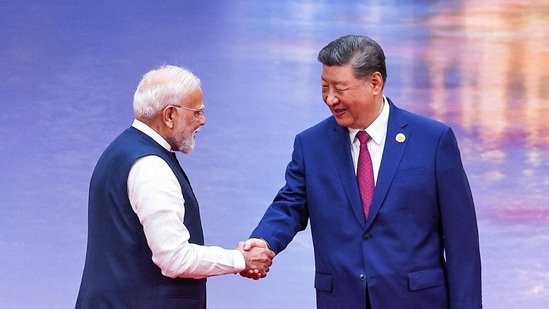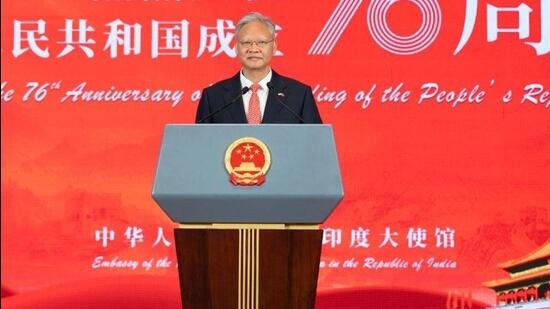This year marks the 80th anniversary of the victory in the Chinese People’s War of Resistance against Japanese Aggression and the World Anti-Fascist War. Eight decades later, concerns are growing worldwide that memories of World War II are fading fast. Younger generations – and even some leading politicians – often lack a full understanding of that devastating conflict. It is crucial that we do not forget the immense suffering endured by the Chinese people and by others across the globe.
The following are remarks made at the Chinese embassy in Ljubjana, Slovenia this month by Uroš Lipušcek, who was a long-time TV Slovenia correspondent in the Middle East, the United States and China, and a candidate for the European Parliament in 2023.
By Uroš Lipušcek The excerpt from the recent Chinese film Nanjing Zhaoxingguan – Dead to Rights (Nánjng zhàoxiànggun, translated as Nanjing Photo Studio) that you have just seen (above) reminds us of the horrors of World War II in China, especially the extensive and unimaginable crimes committed by the Japanese army in what was then China’s southern capital.
The excerpt from the recent Chinese film Nanjing Zhaoxingguan – Dead to Rights (Nánjng zhàoxiànggun, translated as Nanjing Photo Studio) that you have just seen (above) reminds us of the horrors of World War II in China, especially the extensive and unimaginable crimes committed by the Japanese army in what was then China’s southern capital.
Let me stress that the purpose of showing this clip is not to insult today’s Japan, but to warn that such atrocities must never be repeated. Unfortunately, humanity’s memory is short – as is tragically confirmed by the events we witness today, including the genocide in Gaza.
World War II ended in Europe on May 8, 1945, with the capitulation of Nazi Germany, and in Asia only on Sept. 2 of the same year, when Japan signed an unconditional surrender aboard the American battleship USS Missouri.
In Europe, a Eurocentric perspective on the war dominates, while the conflict in Asia is often little known. Historical memory of World War II is fading as the generations of participants and witnesses pass away.
This was confirmed by a statement made by E.U. High Representative for Foreign Affairs Kaja Kallas at the recent ASEAN conference in Malaysia: “Russia turned to China and said: ‘We, Russia and China, fought together in the Second World War, we won the Second World War, we defeated Nazism together.’ I thought, ‘Okay, this is something new.’”
Such a comment shows scandalous ignorance from a politician responsible for E.U. foreign and security policy – ignorance of basic historical facts that every school child should know.
Similarly, U.S. President Donald Trump claimed that the United States won both world wars, ignoring the decisive role of the Red Army on the Eastern Front, China’s massive resistance to Japanese aggression in Asia, and the resistance movements in Nazi-occupied Europe, such as in Yugoslavia.
At the Versailles Peace Conference in 1919, after World War I, the great powers awarded Germany’s former concession in Shandong to Japan. China, officially among the victors, strongly opposed this decision – especially students. This became a major impetus for the founding of the Communist Party of China in 1921.
Chinese Suffering
According to Chinese historians, some 35 million [Chinese] people perished in the struggle, while the Soviet Union lost around 27 million.
China was the first country to mount armed resistance to fascist aggression. As early as 1931, Japan occupied Manchuria and established the puppet state of Manchukuo, headed by China’s last emperor, Puyi.
In 1937, the Marco Polo Bridge Incident in Beijing triggered a full-scale war that lasted eight years. In Nanjing, in December 1937, the Japanese army massacred more than 300,000 civilians in just three weeks and raped tens of thousands of women.
Japan’s infamous Unit 731 conducted biological weapons experiments on civilians and prisoners of war, crimes comparable to Nazi atrocities in European death camps.
A United Front
China’s resistance was unique: despite deep ideological divides, the Communists led by Mao Zedong and the Nationalists led by Chiang Kai-shek formed a united front against the aggressors.
Nothing similar occurred in Europe, where right-wing parties often collaborated with the Nazis. After Japan’s defeat, civil war resumed in China, ending with the Communist victory and the Kuomintang retreat to Taiwan. In 1949, the Communist Party proclaimed the People’s Republic of China, bringing to a close a century of humiliation.
After the war, public attention and historiography focused primarily on naval battles between the U.S. and Japan and, above all, the atomic bombings of Hiroshima and Nagasaki. This framing cast the Japanese as both aggressors and victims, obscuring their inherent responsibility.
China’s armed resistance was further overshadowed by the onset of the Cold War, China’s political isolation, and the unresolved Taiwan issue.
China Helped Save Europe Too

Chinese Eighth Route Army cavalry October 1937 en route to engage Japanese invaders. (Sha Fei/Wikimedia Commons)
Nonetheless, China’s determined resistance against Japan also made a decisive contribution to the defense of the Soviet Union, as China engaged the majority – up to 70 percent – of Japan’s regular military forces.
In doing so, China indirectly supported the U.S. Navy in the Pacific. In 1937, Japan’s General Staff planned an attack on the Soviet Union (the “Northern Plan,” or Hokushin-ron), but was decisively defeated by Soviet forces under General Zhukov at Khalkhin Gol in 1939.
After this loss, Japan shifted its focus to Southeast Asia and the Pacific. Had China collapsed as swiftly as France did in 1940, Japan might have invaded Siberia. In that case, Stalin would not have been able to redeploy 30 Red Army divisions to defend Moscow in December 1941 – a turning point in halting the German advance.
The history of World War II might then have unfolded very differently.
The memory of World War II in China remains contested. In Japan, right-wing politicians still visit the Yasukuni Shrine in Tokyo, where war criminals are enshrined. It is also important to recall that Japanese militarism from the late 19th century onwards closely imitated the Prussian model – with conscription, military dominance in politics, and a powerful officer class. Without the European example, Japanese aggression might have been less severe.
As we commemorate the 80th anniversary of victory over Nazism and fascism, we must acknowledge that this triumph was achieved through joint efforts and should be celebrated together.
It is therefore difficult to understand why senior representatives of the former anti-Hitler coalition boycotted recent commemorations in Beijing, while Japanese diplomacy pressured E.U. member states not to attend it.
Recognition of responsibility for the war and remembrance of its victims remain essential prerequisites for reconciliation, cooperation, and lasting peace.








